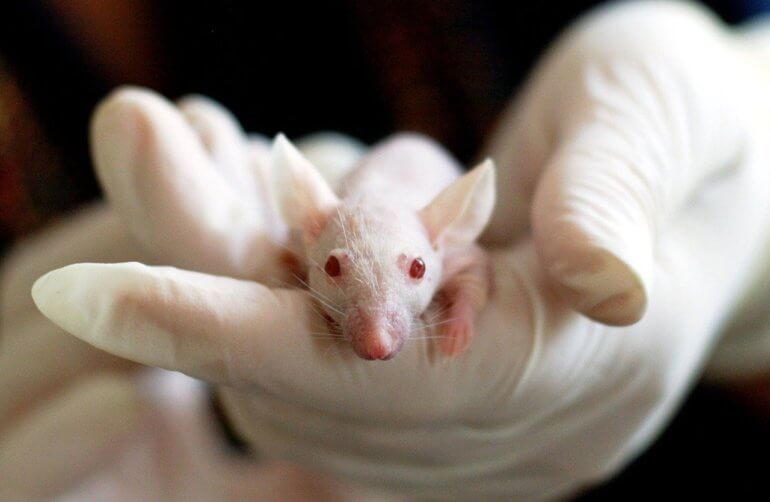Does Killing Countless Animals Actually Help Treat Alzheimer’s? PETA Provides a Better Way
What has killing countless animals in Alzheimer’s experiments taught researchers about the disease? Not much.

After decades of wasted time and money, more than 100 unsuccessful drugs, and the loss of an untold number of animals’ lives, no cure for Alzheimer’s disease or method of slowing its progression in humans has been found. Now, PETA provides a better way with a strategy to phase out unreliable tests on animals and replace them with human-relevant, non-animal methods. Read on to find out more.
Here are five things revealed by the overwhelming failure of using animal models for Alzheimer’s research:
-
Mice, rats, monkeys, dogs, and other animals don’t naturally develop Alzheimer’s disease.
Mice are quick learners and caring parents, and they even sing to their mates. They’re wonderfully complex and interesting. But just because they have thoughts and emotions just like humans do doesn’t mean we share the same physiology.
Experimenters manipulate the genome of mice and other animals to force amyloid plaques to build up in their brains, just as they build up in the brains of humans with Alzheimer’s disease. While these mutilated animals may have symptoms that resemble those of Alzheimer’s, they don’t actually have the disease.
Studies have shown that trial drugs that remove toxic amyloid-beta protein from animal brains can help the animal. However, these same drugs do not help human patients with memory loss or cognitive problems.
-
Some treatments that have worked in animal trials have actually hurt human patients with Alzheimer’s.
While a compound of drugs known as BACE inhibitors proved successful in tests on mice who’d been genetically altered to develop a pseudo-Alzheimer’s condition, these drugs actually appeared to worsen human patients’ cognitive abilities and potentially exacerbate brain shrinkage. Six pharmaceutical companies echoed this same stunning failure.
-
Over half a million Alzheimer’s patients need treatment or a cure.
According to the Alzheimer’s Society, more than 520,000 people in the UK have dementia caused by Alzheimer’s disease. Along with other forms of dementia, this costs the UK an estimated £34.7 billion a year. Despite this grave reality, no treatment exists to slow down the disease’s progression, and the failure rate in humans for new Alzheimer’s drugs is a staggering 99%.
-
Animal testing is archaic and ineffective.
Curing Alzheimer’s requires a 21st century approach. As Allen Institute for Brain Science Senior Investigator Ed Lein stated, “We’re trying to cure a disease of a complex system we fundamentally don’t understand.”
Bradley Hyman, a professor of neurology and Alzheimer’s researcher at Harvard Medical School and Massachusetts General Hospital, expanded on this point, adding that the complexity of Alzheimer’s disease makes it “very difficult to model in experimental systems.” He says, “[D]irect examination of the human brain is without a doubt crucial to understanding the disease.”
-
We must stop killing animals and actually focus on the human brain.
More than ever, researchers must embrace non-animal research methods that are actually relevant to human physiology.
For example, although the Alzheimer’s Society continues to fund experiments on animals, we applaud the charity for establishing a “Brains for Dementia Research” initiative so that people can pledge to donate their brains after they die, thereby allowing researchers to investigate dementia using human brain tissue. Additionally, in 2014, the National Centre for the Replacement, Refinement and Reduction of Animals in Research awarded £100,000 to four research teams to develop a method to study Alzheimer’s disease using human stem cells.
Moreover, thanks to developments in human brain imaging and mathematical modelling, scientists at the University of Cambridge have made progress in tracing proteins associated with Alzheimer’s in human brains.
What You Can Do
Support charities that actually help humans and don’t test on animals. Humans and other animals deserve better from experimenters than death and failure.
Read up on PETA’s Research Modernisation Deal – our strategy for phasing out unreliable, cruel tests on animals and moving towards ethical, non-animal methods – and share what you learn with your friends and family.





